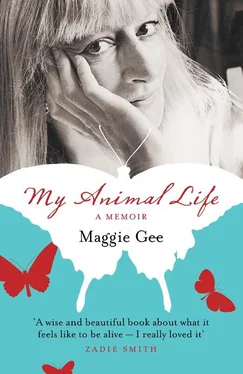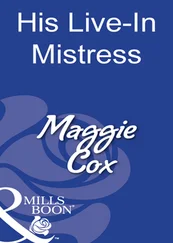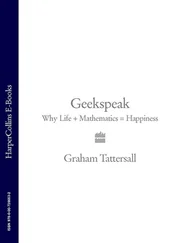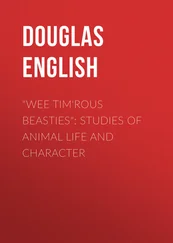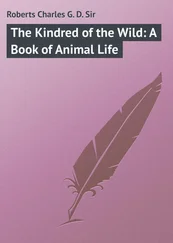But financially, the wolves were slinking round the door, clattering the lids of the dustbins outside. Richard had sunk his inheritance into the firm, but he was an editor, not an accountant. I had grown more steely through those three hard years, and I remember one day how I went down the steps to see this tall man who had done so much for me, determined to get the second half of my advance, payable on delivery, now I had given him the edited text. He had great charm, and we liked each other. He did not refuse, but said something like, ‘We don’t have to do it now, do we? I could put it in the post.’ All the conventions of politeness said, ‘Oh, put it in the post, Richard.’ But the steel in me said, ‘Now would be great.’ I left the office, his cheque hot in my hand, and paid it in to the bank with indecent haste.
Publication was scheduled for some time in autumn. The cover proof shimmered, a cave of blue ice. Christine Casley’s editing had cured me for ever of my overuse of ellipses and italics. We had a summer holiday in Cornwall with Rosa and her friend Aline, camping near a surfing beach. It was a brilliant holiday, a treat for the body, walking on rolling cliffs and long sands, lying on our backs to watch shooting stars. I was very happy that things had got better, infinitely grateful for ordinariness. The girls were twelve and fourteen: a lovely age. They stayed in bed in their tent in the morning while Nick and I had time on our own. I was supposed to ring Richard from a callbox — this was before the days of mobiles — to check the last few corrections to the text and get a definite publication date. I remember I left the girls and Nick on the beach at St Ives, below the new Tate. I had to walk through some cavernous, hellish entertainment place to find the callbox. Going back into the underworld .
Richard was sounding slightly evasive. Various things were going on, he said. He had a few ‘troubles’. He was wondering … perhaps it would be better to publish in the spring? Then he could really make a good job of it. There would be more money, he’d be on a firmer footing. I was caught off guard, and did not disagree.
I went back to the beach. The girls were playing, the sand was white, it was the same as before, but a terrible dread began to crystallise as I relayed this apparently anodyne message.
Nick’s reaction was instinctive and immediate. He went through his pockets to find more coins. ‘You go back and tell him he’s got to publish. It has to be now, Mags, you’ve got to get it out. And if he’s short of money, we’ll find it somehow. I’ll find it. I will. Go and tell him that.’ I trusted Nick’s instincts. I was impressed. I went back through hell to talk to Richard.
He did find the money. They made a lovely book, with expensive paper and a cover of austere cobalt beauty, an ice-cave leading away into light, something silver, mysterious, just around the corner. Twelve copies arrived: I held the first in my hands, electric with joy. I was alive again. I have never loved a book so much as The Ice People , that cool blue drink after three years of drought. Now at last I realised how precious books were, how hard and risky it was to write them, how chancy the business of jumping through the hoops.
But I had made it in the nick of time. On the day the book was published, the publisher went bust. The launch party for my book was a wake. Half the literary world had turned up, not just for me but out of sympathy for Richard. We must have sold sixty or seventy books that evening, because I caught a muttered conversation between two of the staff as they totted up the takings: ‘Over £600. That’ll pay X’s wages.’ The reviews of this book that the tall, superior agent had said ‘did not demand to be published’ were almost uniformly ecstatic. Jeremy Paxman invited me on ‘Start the Week’ and was intelligent and enthusiastic, saying I was ‘up there with Orwell and Huxley’; Eric Korn praised me highly in the TLS ; George Melly raved in the Telegraph ; Fay Weldon applauded in the Literary Review : as in a happy dream, everybody loved it. The Times, Time Out , all fell into line.
The best of Richard’s list was bought up by another small publisher, Metro, run by the impressive Suzanne McDadd who, after my time there, had been a director of Faber and Faber. She stayed up half the night reading The Ice People , loved it, and paid me for the paperback rights. Soon they were preparing a mass market paperback, its jacket lavishly decked with quotes. The Mail on Sunday book club made it their book of the week: Rose Tremain wrote a praising feature to accompany the Mail offer. Richard Cohen told me Metro sold 30,000 copies. And now the story almost dips into farce, for Metro Books, in turn, went bankrupt, and I never did get my royalties.
But the book itself has continued to be successful. It is now in its third edition, the most recent described by the Observer as ‘masterly … one of the first great novels of the globally warmed world’. Last year my new agent sold the television rights.
I picked up the threads of my career. I started on what was once unthinkable: rereading, and revising, The Keeper of the Gate , which for years I’d been unable to bear to look at. And I saw Nick had a point. There was something there. In fact, perhaps … could he even be right? Was it possible that actually it was my best book?
And now I come to the nub of this chapter, the point I want to make with this long story of the worst five years of my professional life, a story I don’t enjoy retelling because I have to re-experience the terror of failing. Many novelists stall at a certain point. Their profession deserts them. They are no longer wanted. And I was so nearly one of them.
What I learned was, there’s little logic in this world. No team of angels combing the wind to see that no one good slips through. No internal aesthetic, no guarantee. Literary history is not foolproof, no more than art history is. I realised this long ago, when I first started travelling and visiting the local galleries wherever I went, in Dusseldorf, Salzburg, Berne, Bournemouth: that art history is an approximation. I always found at least one or two painters I had never heard of, but thought remarkable. Perhaps they didn’t paint enough; perhaps they lived in the wrong place, or were ahead of their time, or knew the wrong people, or didn’t live long enough, or weren’t pushy enough. Somehow they slipped off the historical map where the path of the famous is crudely marked out. (I see the same phenomenon on courses I teach. It’s not always the most talented ones who go on to be successful; it’s the luckiest and most determined.) I started to put my observations of the literary world together with my reading on evolutionary biology; life was struggle, and all human activities related to our jostling for advantage. Were the other things just illusory, then, the watchwords I’d lived by, truth, beauty?
I saw that literature had never been the self-sufficient world the modernists tried to make for themselves. They did it, in fact, by self-publishing, by patronage. They also built cliques who believed (or believed they believed) that only beauty mattered; in fact they were cohorts who pushed each other through. Virginia and Leonard Woolf showed sound common sense by founding their own publishing firm. The Hogarth Press liberated them from being dependent on commercial whim, which Virginia was too fragile to survive, but they ran it as professionals, and made money.
What was writing, at bottom, biologically? A human activity, like painting and sculpting, a skill we use to make a reputation in our group. These skills aren’t magic; they come from a connection between senses, dreaming brain, and hand (in earlier times, when narratives were oral, between brain, voice and performing body). Storytellers always had value to the tribe, because humans like novelty, and laughter, the pleasure of adventure, of happy endings, of listening to ancestral memories or sometimes experiencing sorrow safely.
Читать дальше
